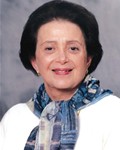Emory faculty-physicians were honored May 20 at the annual Health Care Heroes Awards celebration sponsored by the Atlanta Business Chronicle. All three are featured in this week’s edition of the newspaper.
Sheryl Gabram-Mendola, MD, professor of surgery at Emory School of Medicine and the Winship Cancer Institute, was the Community Outreach winner. Gabram-Mendola is director of the Avon Foundation Comprehensive Breast Center at the Georgia Cancer Center for Excellence at Grady Memorial Hospital.
She was nominated by the Georgia Cancer Coalition and honored for her work in reducing breast cancer mortality by increasing breast cancer awareness and leading the effort to diagnose the disease earlier in a high-risk population of minority women.
Last September the Avon Foundation awarded $750,000 to the Winship Cancer Institute at Emory and the Avon Comprehensive Breast Center. The grant is being used to continue community outreach, education, clinical access, and four research studies that directly affect care for the underserved populations in Atlanta. Since 2000, the Avon Foundation has awarded nearly $11 million to Winship and Grady to support leading-edge breast cancer research projects and improve outcomes for underserved women diagnosed with breast cancer in Atlanta.
- Atlanta Business Chronicle
- Avon Comprehensive Breast Center
- Avon Foundation
- awards
- breast cancer
- cancer
- cardiology
- Children's Healthcare
- Children's Healthcare of Atlanta
- Emory Healthcare
- Endo-ACAB
- Georgia Cancer Coalition
- Grady Hospital
- Health Care Heroes Awards
- hybrid cardiovascular surgery
- interventional cardiology
- kidney transplant
- pediatric transplant
- pediatric transplants
- S. Tanver Rab
- Sandra Amaral
- Sheryl Gabram-Mendola
- Winship











